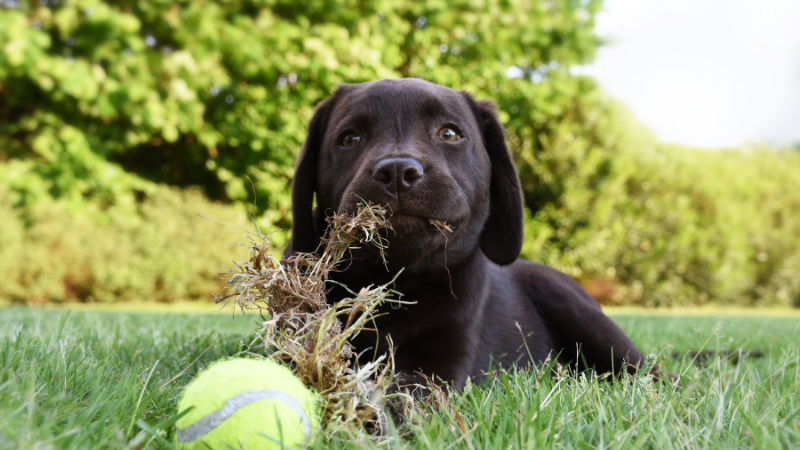
We all know dogs who munch on grass like cows, but do they understand that their digestive system can’t tolerate that much vegetation at once? Typically, it’s just normal canine behaviour and nothing to worry about but let’s dig a little deeper.
Is it instinct or does it just taste good?
Some dogs seem to like the taste of grass and other vegetation, and we see this in pets who eat their veggies with us at suppertime. In small amounts, grass and many plants are fine for dogs.
When we look at wild animals, their diet is made up of raw meat in the form of prey. To keep parasite burdens under control, they may eat grass in order to make themselves vomit. This instinct may explain the behaviour in dogs – even if they are fully protected with routine parasite control.
Abdominal pain and nausea can contribute to the urge to eat grass. Dogs probably don’t know that eating grass will make them throw up, but they may learn that doing so provides temporary relief from tummy upsets in relation to stomach issues, pancreatic disease, or liver conditions.
Keep these points in mind
- Make sure that grass and plants are non-toxic. Lawn grass tends to be fine for dogs. Ask your veterinarian about home and garden plants like lilies, azaleas, and foxglove that can be poisonous. You also want to keep pets away from garden waste that may harbour toxic moulds.
- Keep dogs away from lawns and gardens that were recently treated with fertilizer, herbicides, and insecticides. Check labels and ensure that landscape professionals know that you have pets.
- Check your dog’s diet. If your dog occasionally eats grass and vomits, check with your veterinarian about their diet. Some animals will benefit from a food change that adjusts protein and dietary fibre levels based on individual needs.
- Look for other signs of abnormal appetite. Pets may have behaviour conditions that cause them to eat unusual plant and non-food materials. Rarely, anxiety-based disorders may cause compulsive eating of grass and other vegetation.
